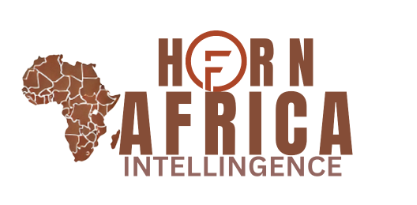The ongoing conflict in the Democratic Republic of Congo (DR Congo) has posed a significant challenge to regional stability, drawing the involvement of key African leaders in mediation efforts. One of the primary figures in this endeavour, former Kenyan President Uhuru Kenyatta, has played an active role in trying to broker peace. However, recent developments have highlighted increasing tensions between Kenyatta and his successor, President William Ruto, which are now threatening to derail the already sluggish mediation process.
Last-Minute Removal from AU Peace and Security Council Meeting
In an unexpected turn of events, Uhuru Kenyatta was removed at the last moment from the list of participants at an African Union (AU) Peace and Security Council meeting. This move raised eyebrows across diplomatic circles, as Kenyatta has been a crucial mediator in the peace efforts aimed at resolving the ongoing conflict in DR Congo. His exclusion has further fueled speculation about the strained relationship between him and Ruto, adding an additional layer of complexity to an already fragile peace process.
The AU Peace and Security Council, which serves as the main decision-making body on security issues within the continent, was expected to discuss progress in DR Congo and assess mediation efforts. Kenyatta’s absence from this important platform has led to concerns about the continuity of Kenya’s diplomatic engagement in the matter.
A History of Mediation in DR Congo
The DR Congo has been grappling with instability and armed conflict, particularly in its eastern regions, for decades. Various rebel groups, including the M23 movement, have been at the center of hostilities, leading to mass displacement and humanitarian crises. Regional powers have been working through organizations like the East African Community (EAC) and the AU to mediate and bring about a resolution to the violence.
Kenyatta has been one of the leading figures in this effort, having been appointed as the EAC’s facilitator for the Nairobi Peace Process after his tenure as Kenya’s president ended in 2022. He played a critical role in bringing conflicting parties to the negotiating table and encouraging dialogue between DR Congo’s government and rebel groups. His diplomatic experience and established relationships with key regional leaders have made him a valuable mediator in the process.
Strained Relations Between Kenyatta and Ruto
The decision to exclude Kenyatta from the AU meeting appears to be a direct result of political tensions between him and his successor, William Ruto. The rivalry between the two has been evident since Ruto assumed office in 2022, with growing disagreements over domestic and foreign policy matters.
Kenyatta, a key figure in Kenyan politics, had initially backed opposition leader Raila Odinga in the 2022 presidential elections, positioning himself against Ruto. Since losing the election, Kenyatta has remained an influential figure, particularly in regional diplomacy. However, Ruto’s administration has sought to assert its own authority over Kenya’s mediation efforts, seemingly sidelining his predecessor in the process.
The Ruto administration has also been keen to shift Kenya’s foreign policy priorities. While Kenyatta had positioned Kenya as a neutral and influential mediator in East Africa, Ruto has sought to align the country’s diplomatic engagements more closely with his own administration’s agenda. This shift has resulted in a power struggle over Kenya’s role in regional peace processes.
Impact on DR Congo Peace Mediation
Kenyatta’s removal from the AU meeting is likely to have significant consequences for the peace process in DR Congo. His exclusion not only undermines his credibility as a mediator but also signals potential disruptions in continuity and trust among the negotiating parties. The DR Congo conflict requires sustained engagement from seasoned mediators who have established rapport with stakeholders, and Kenyatta’s absence may lead to setbacks.
Furthermore, the perception of political infighting within Kenya risks damaging the country’s reputation as a reliable and impartial diplomatic player. If the mediation process is seen as being influenced by internal political disputes, conflicting parties may become less willing to cooperate, thereby prolonging instability in DR Congo.
The EAC-led Nairobi Peace Process, which Kenyatta was spearheading, has already faced challenges due to disagreements between DR Congo’s government and various rebel factions. The recent tensions between Kenyatta and Ruto could further weaken these efforts, leaving a vacuum in regional mediation at a critical moment.
Regional and International Reactions
The international community has taken note of these developments, with concerns rising over the potential fallout for peace efforts in DR Congo. The AU and other regional bodies have yet to publicly address Kenyatta’s exclusion, but diplomatic observers suggest that internal Kenyan politics should not overshadow the broader goal of restoring stability in DR Congo.
Several international partners, including the United Nations and Western governments, have been supporting mediation efforts in DR Congo and may seek clarification on Kenya’s shifting role in the peace process. If Kenya appears divided in its approach, external mediators may step in to fill the gap, potentially diminishing Kenya’s influence in regional diplomacy.
The Road Ahead
To ensure that mediation efforts in DR Congo do not suffer further setbacks, it is crucial for Kenya to establish a unified approach to its role in the peace process. Both Kenyatta and Ruto must recognize the importance of continuity and cooperation in regional diplomacy. Personal and political differences should not be allowed to jeopardize a mediation process that has far-reaching consequences for regional stability.
One possible way forward is for the AU and EAC to clarify Kenya’s official stance on the mediation efforts and outline a clear framework for continuity. If necessary, an impartial body within the AU could be assigned to oversee Kenya’s involvement to prevent political tensions from interfering with the peace process.
Ultimately, DR Congo’s conflict requires committed and experienced mediators who can navigate the complex political and security landscape. Whether or not Kenyatta will continue playing an active role remains uncertain, but what is clear is that Kenya’s internal political dynamics should not stand in the way of securing peace for the millions affected by conflict in DR Congo. The success of the mediation process will depend on prioritizing diplomacy over political rivalry.
[display-map id=’3823′]











